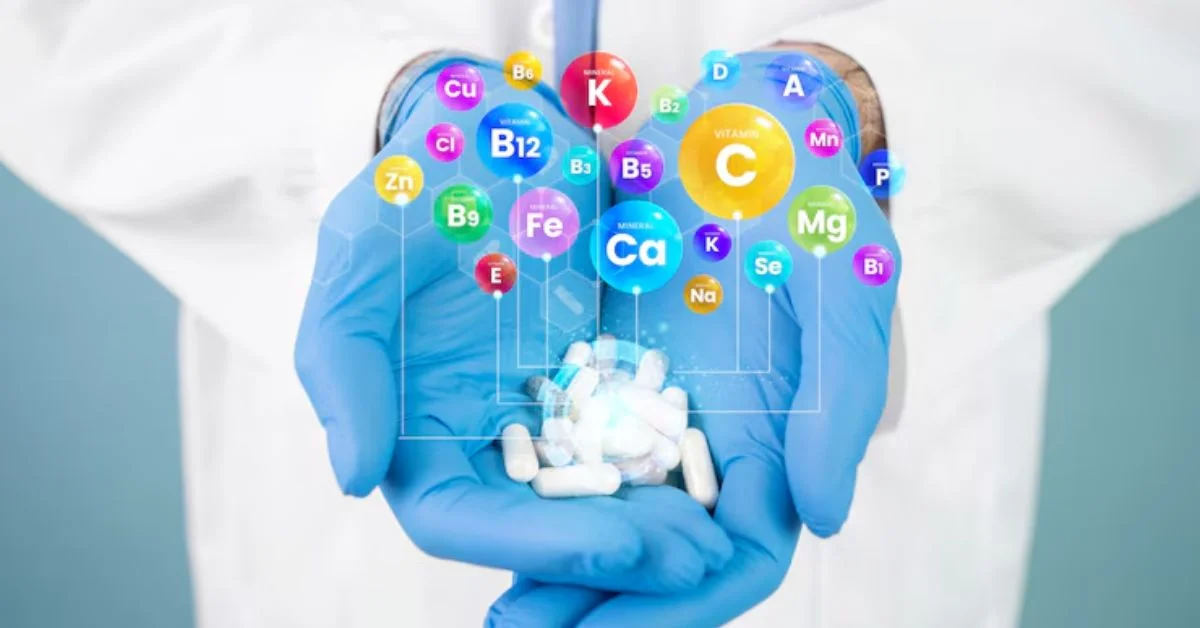In a world increasingly attentive to mental health, chronic pain, and neurological disorders, the name Epitomax echoes with growing familiarity. Though often recognized by its generic name, topiramate, Epitomax occupies a unique and evolving position in the modern pharmacological landscape. Originally developed as an anticonvulsant, its use now spans a range of conditions including migraine prevention, bipolar disorder, and even off-label applications like weight loss.
This article explores Epitomax through a layered lens—medical, psychological, cultural—offering readers not only a technical understanding but a contextual appreciation for how this single molecule touches many lives in complex, often controversial, ways.
What Is Epitomax?
Epitomax is the brand name for topiramate, a medication first approved by the FDA in the 1990s. Its primary action occurs through modulation of neurotransmitters—particularly by enhancing GABA activity and inhibiting glutamate receptors. In simpler terms, Epitomax calms excessive neural firing, which is what makes it effective against seizures.
However, as often happens in pharmacology, its effects turned out to be broader than expected. Doctors and patients began to notice other outcomes: appetite suppression, mood stabilization, and migraine reduction. These observations opened new doors—and new questions.
FDA-Approved Uses of Epitomax
Epitomax is officially approved for:
- Epilepsy: As monotherapy or adjunct treatment for adults and children
- Migraine Prophylaxis: Preventing chronic migraines in adults and adolescents
- Lennox-Gastaut Syndrome: A rare, severe form of epilepsy
While these conditions form the drug’s regulatory backbone, Epito-max is prescribed far beyond these boundaries. Physicians often turn to it for treatment-resistant depression, generalized anxiety disorder, and PTSD, despite limited formal endorsement.

How Epitomax Works in the Body
Epito-max’s mechanism of action is multifactorial:
- Inhibition of Voltage-Gated Sodium Channels: Reduces excessive electrical activity in the brain.
- Enhancement of GABAergic Activity: Boosts the brain’s natural calming signals.
- Antagonism of AMPA/Kainate Receptors: Diminishes excitatory neurotransmission.
- Inhibition of Carbonic Anhydrase Enzymes: Alters pH balance, potentially affecting neuronal activity.
This multifaceted action profile gives it versatility—but also complexity. While it helps many, it doesn’t suit all.
The Patient Experience: Relief, Resistance, and Side Effects
For many, Epitomax is transformative. A chronic migraineur might go from 15 days of pain per month to just three. A person with epilepsy might achieve seizure freedom for the first time in years. But the experience isn’t universal.
Common Side Effects:
- Cognitive dulling (often called “Dopamax” by users)
- Tingling in hands and feet
- Appetite suppression
- Metallic taste in the mouth
- Mood disturbances
Rare but Serious Side Effects:
- Kidney stones
- Metabolic acidosis
- Vision problems (including acute myopia and glaucoma)
- Suicidal ideation in predisposed individuals
Understanding Epito-max is as much about nuance as it is about mechanism.
Off-Label Uses: Where Science Meets Experimentation
Epito-max’s journey didn’t stop at epilepsy. Its off-label uses have become a source of both hope and debate:
1. Mood Disorders:
Some psychiatrists use Epitomax to augment antidepressants in treatment-resistant depression. In bipolar disorder, it may act as a mood stabilizer, though it’s not universally effective.
2. Weight Management:
Epitomax’s appetite-suppressing qualities led to its combination with phentermine in the branded drug Qsymia. Though effective, concerns around long-term safety remain.
3. Substance Use Disorders:
Early studies show promise in reducing cravings for alcohol and cocaine, making it a subject of ongoing research.
4. PTSD and Anxiety:
By dampening neural hyperactivity, Epito-max may relieve some symptoms. However, its cognitive effects are a drawback for many.
The Pharmacoeconomic Landscape
As a generic medication, topiramate is widely accessible. But Epito-max, as a branded version, often comes at a higher cost. Insurance coverage varies depending on indication and jurisdiction, creating a patchwork of affordability.
Moreover, the economics of long-term use include more than the price tag. For example, a person benefiting from fewer migraines may avoid costly emergency visits or lost workdays—a silent yet significant economic benefit.
Who Should Avoid Epitomax?
Contraindications include:
- History of hypersensitivity to topiramate
- Individuals with metabolic acidosis
- Pregnant women, due to teratogenic risks (notably cleft palate)
It’s also not ideal for those with a history of kidney stones or severe depression, unless carefully monitored.
The Issue of Pregnancy and Fertility
Epitomax is classified as a Category D drug for pregnancy. Studies show a higher risk of oral clefts in newborns when exposed in utero. Women of childbearing age must be counseled rigorously and offered alternative therapies or stringent birth control methods.
Interestingly, some studies are beginning to explore Epitomax’s potential impact on male fertility, though data remains inconclusive.
Voices from the Field: Clinician Perspectives
Dr. Elisa Mendez, a neurologist in Boston, says:
“Epitomax is powerful, but it’s a blunt instrument. You need a careful hand.”
Dr. Trevor Singh, a psychiatrist, adds:
“It’s a tool in the toolbox. I use it rarely—but when I do, it’s often a game-changer.”
This cautious optimism defines the medical consensus: useful, but not universal.
Cultural Considerations and Internet Mythologies
Like many drugs with off-label popularity, Epitomax has generated a subculture of testimonials, YouTube reviews, Reddit forums, and even TikTok commentary. Some praise its weight-loss benefits; others warn against its cognitive blunting. This patchwork of anecdotal data complicates public perception.
The medical community is increasingly tasked with separating experience from evidence. For every person thrilled by Epitomax, another discontinues due to intolerable side effects. The internet amplifies both truths.
New Research Horizons
In 2025, clinical trials are expanding into:
- Epitomax for cluster headaches
- Neuroinflammatory diseases
- Sleep disorders and circadian rhythm adjustment
- Adjuvant therapy in chronic pain syndromes
Moreover, pharmacogenomic profiling is beginning to predict who will tolerate or respond to the drug. This promises a future where trial-and-error becomes obsolete.
Navigating Discontinuation: A Delicate Process
Abruptly stopping Epitomax can trigger seizures, withdrawal symptoms, and mood destabilization. Tapering under medical supervision is mandatory. Some patients report rebound migraines or weight gain upon cessation.
The emotional component of discontinuation is also significant. For patients who found relief after years of suffering, letting go of Epitomax can feel like surrendering stability.
Ethical and Regulatory Questions
As off-label uses grow, ethical questions arise:
- Should a drug with cognitive side effects be used for cosmetic weight loss?
- What constitutes informed consent in psychiatric use?
- How do we protect vulnerable populations from unintended harm?
The regulatory frameworks lag behind clinical reality. In many countries, oversight of off-label prescribing is minimal, placing a heavy burden on the clinician’s judgment.
Digital Health and Monitoring Tools
With the rise of digital health tools, patients on Epitomax can now track side effects, cognitive changes, and mood variations through integrated platforms. Apps may soon alert users when their dosage needs adjusting or when warning signs appear.
This convergence of tech and medicine could make Epitomax safer and more personalized.
The Bottom Line: Is Epitomax Right for You?
Epitomax is not a miracle drug—but for some, it comes close. It exists in the gray area between benefit and risk, power and subtlety. Whether it is right for you depends on:
- Your medical history
- Your risk tolerance
- Your ability to monitor and communicate side effects
- Your doctor’s experience with the drug
Conclusion: The Duality of Epitomax
Epitomax represents the best and most complex aspects of modern medicine. It helps, but it can also harm. It offers freedom to some and side effects to others. In a healthcare environment that often craves clarity, Epitomax insists on nuance.
Its story is still being written. As new data emerges, and as more people share their journeys, we will better understand where Epitomax belongs—in the medicine cabinet, in the discourse of mental and neurological health, and in the evolving narrative of patient-centered care.
For more information, click here.









